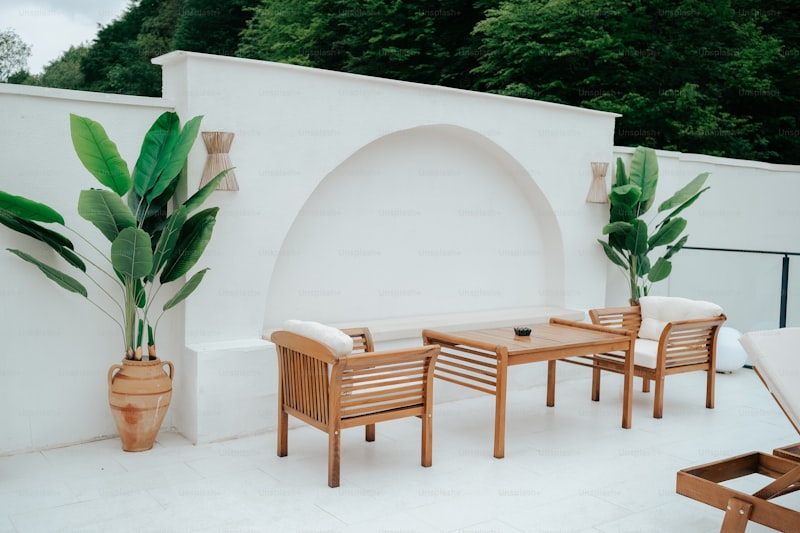Embracing Holistic Wedding Planning for Sustainability: A Comprehensive Guide
In recent years, there has been a significant shift in the wedding planning industry towards sustainability. Couples are increasingly aware of the environmental impact of their celebrations and are seeking holistic wedding planning approaches that prioritize sustainable practices. In this article, we will explore the essence of holistic wedding planning for sustainability, its benefits, and practical steps couples can take to create an eco-friendly wedding experience. We will answer some frequently asked questions, provide examples, and include a helpful summary table at the end of this extensive guide.
Understanding Holistic Wedding Planning
Holistic wedding planning is a comprehensive approach that considers the couple's values, needs, and the environment. It goes beyond the surface-level aspects of wedding organization, integrating sustainability into every detail of the event. This means considering how each decision, from the venue to the decor and catering, affects the planet.
Benefits of Sustainable Wedding Planning
Sustainable wedding planning offers numerous advantages, both for the environment and for couples seeking a meaningful celebration. Here are some of the key benefits:
- Environmental Impact: By choosing sustainable options, couples can significantly reduce the carbon footprint of their wedding.
- Cost-Effectiveness: Sustainable choices can be budget-friendly. For instance, opting for local vendors can cut transportation costs.
- Memorable Experience: A focus on sustainability can create a unique and personal experience that resonates with the couple and their guests.
- Community Support: Working with local businesses and artisans helps to strengthen the community and promote local economies.
Steps to Achieve a Holistic Wedding Planning Experience
1. Choosing the Right Venue
The first step in your sustainable wedding planning journey is selecting an eco-friendly venue. Look for locations that prioritize sustainability, such as botanical gardens, farms, or eco-resorts. These venues often have practices in place to minimize waste. Consider venues that actively participate in renewable energy initiatives or have sustainable certifications.
2. Inviting Nature In: Eco-Friendly Decor
When it comes to decor, think natural and minimalistic. Utilize flowers and plants that are in season and locally sourced. Instead of cut flowers, consider potted plants that guests can take home as favors. Furthermore, use biodegradable or reusable materials for your decorations. Avoid single-use plastics and embrace natural alternatives, such as bamboo or glass.

Table: Sustainable Decor Choices
| Type of Decor | Eco-Friendly Option |
| Floral Arrangements | Locally sourced and potted plants |
| Table Settings | Bamboo utensils and glass dishes |
| Lighting | Solar-powered LED lights |
3. Sustainable Catering Options
Catering can often be the most significant contributor to a wedding's carbon footprint. Opt for a caterer who focuses on using local, organic ingredients. This not only supports local farmers but also reduces transportation emissions. Additionally, consider vegetarian or vegan menu options, which generally have a lower environmental impact than meat-based choices.
4. Sustainable Fashion Choices
Weddings often involve significant consumption of fashion, from the bride's gown to the bridesmaids' dresses. Choose sustainable fabrics, such as organic cotton or recycled materials, for your wedding attire. Renting clothing rather than purchasing can also minimize waste. Remember that vintage shopping is not only eco-friendly but can also lend a unique touch to your wedding style.
5. Eco-Conscious Invitations
In the digital age, there are numerous ways to reduce paper waste. Consider sending digital invitations that can be easily shared and stored. If you prefer traditional invites, use recycled paper or seed paper that guests can plant afterward. This not only minimizes waste but also adds a unique, memorable element to your wedding.
6. Wedding Favors and Gifts
Instead of traditional wedding favors that end up in the trash, consider giving your guests sustainable gifts that they will appreciate. Local handmade items, seed packets, or edible favors can leave a lasting impression while being environmentally friendly. These thoughtful choices stand out to guests and align with your wedding's sustainable focus.
Frequently Asked Questions (FAQs)
Q: How can I make my wedding more sustainable on a budget?
A: Start by choosing a venue that does not require heavy decor changes. Use what nature provides, like beautiful scenery, and rely on local vendors who may offer competitive prices. Opt for a smaller guest list to manage costs and waste.
Q: Are there specific certifications to look for in sustainable vendors?
A: Yes, many vendors might have certifications such as Green Wedding Association membership or EcoCert. Always ask about their sustainability practices during the selection process.
Q: What are some sustainable alternatives to traditional wedding rings?
A: Consider rings made from recycled metals, lab-grown diamonds, or alternative stones such as moissanite. These options significantly reduce the environmental cost associated with mining.
Conclusion: The Future of Weddings
Holistic wedding planning for sustainability is not just a trend; it represents a shift towards consciousness in celebratory practices. By embracing various eco-friendly practices, couples can create a memorable and impactful celebration that resonates with their values. From venue choices to decor, catering, and attire, every decision contributes to a larger picture of environmental stewardship.
As you embark on your wedding planning journey, remember that small changes can make a significant impact. Your sustainable wedding not only serves as a celebration of love but also as a commitment to protecting the planet for future generations. Choose wisely, support local, and let your love story intertwine with sustainable practices.
In conclusion, the path to a sustainable wedding involves intention, creativity, and a willingness to rethink traditional practices. As couples consider these factors, they contribute to a growing movement that champions a greener and more meaningful future, setting an example for others to follow.